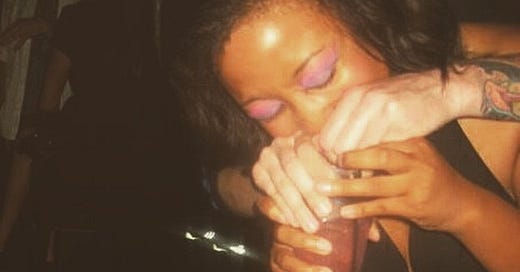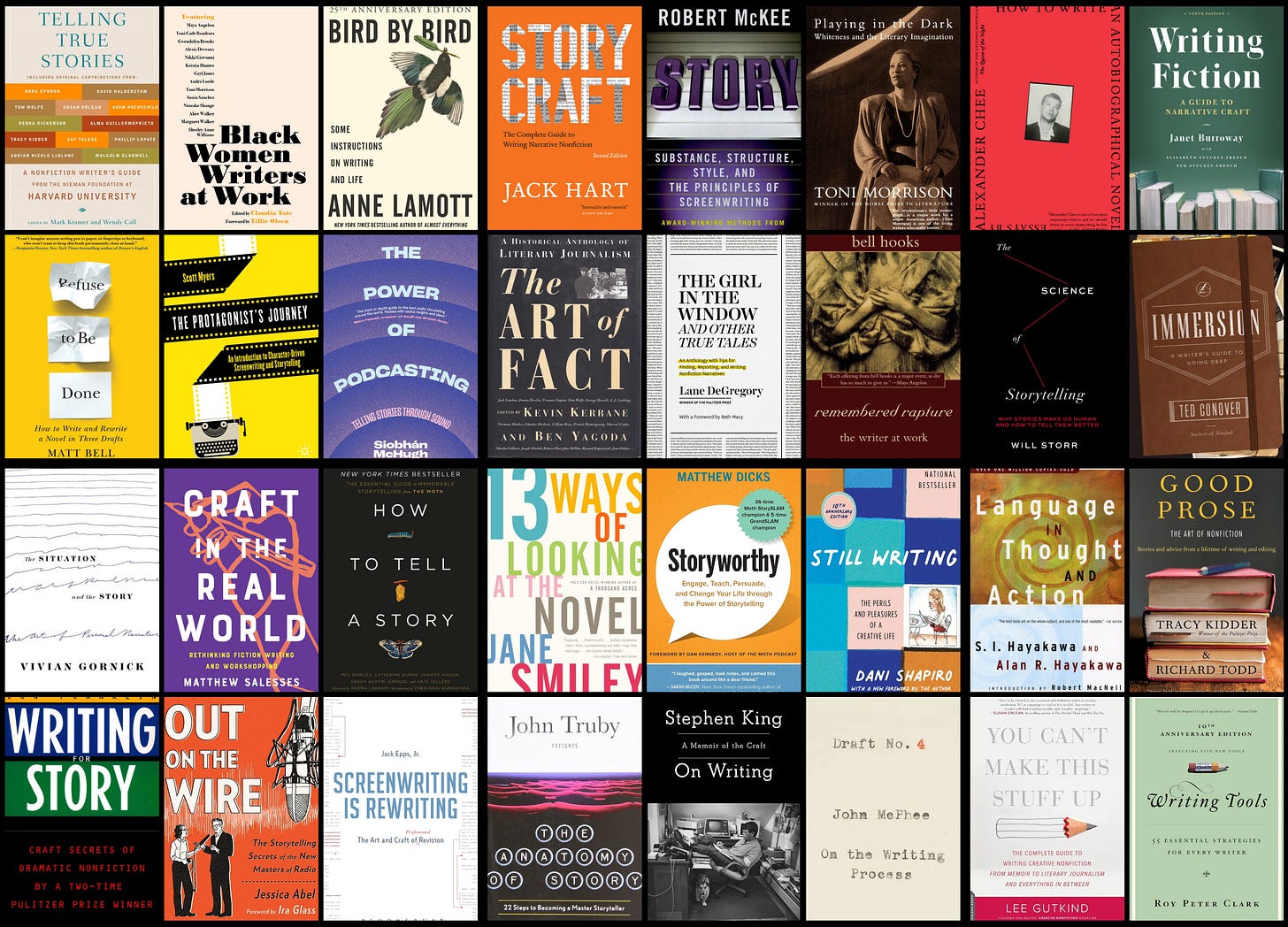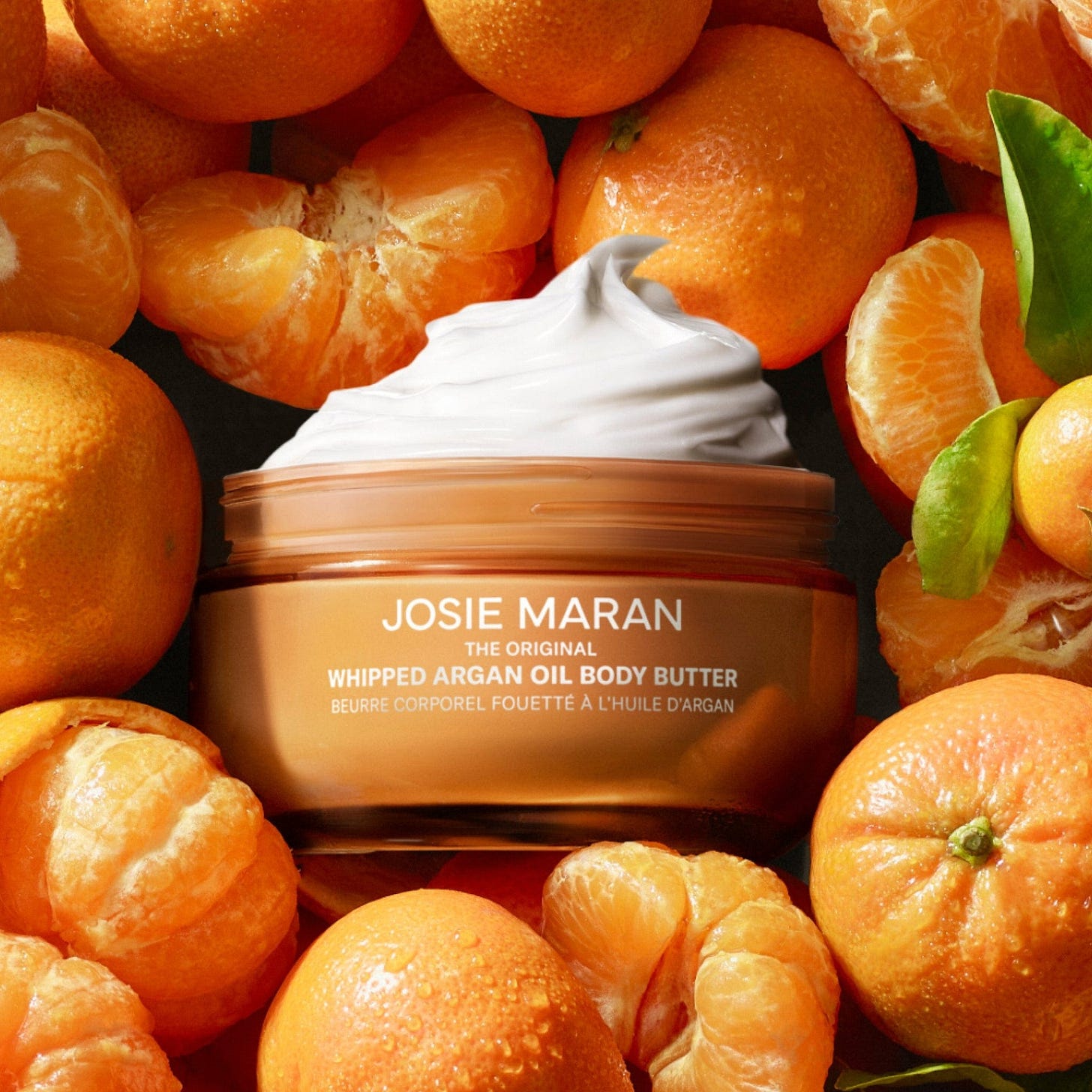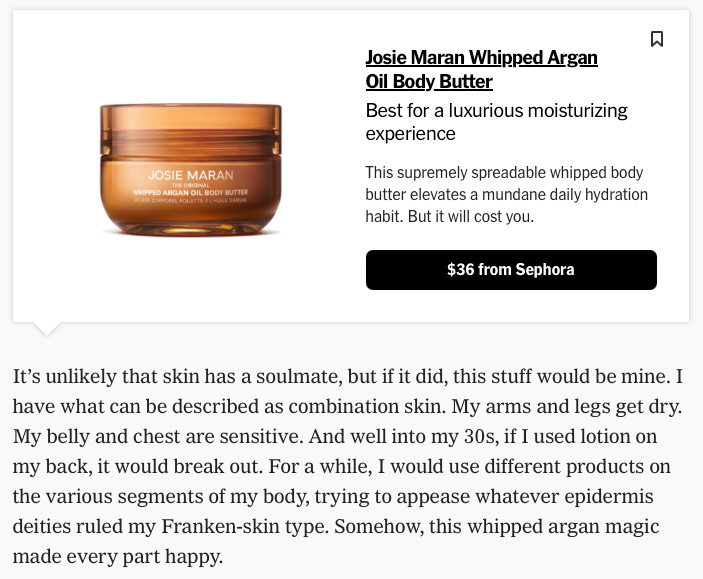I’ve received an influx of new subscribers over the past day thanks to
including my thoughts in her recent “ Men Yell at Me” newsletter about why women are opting out of marriage.If you want more of me and Lyz together, you can check me out on an episode of her “This American Ex-Wife” podcast.
I also popped up today in a Nieman Storyboard piece rounding up craft book suggestions.
I’ve currently got my nose in “Black Women Writers at Work” as the workshop I’m structuring around the book starts up soon, so of course it was immediately where my mind went when asked to contribute a book to the list.
There are trusted classics on this list and a few I haven’t read yet that I’m adding to my TBR, like Jane Smiley’s “13 Ways of Looking at the Novel.”
The homie
brought the heat this week to her contribution to Writing CoLab’s “100 Days of Creative Resistance.”Civility is a cop out.
I fell in love with this Josie Maran body butter in “Topless Tangerine.” If you like the smell of Glossier’s “Body Hero” line — it’s orange blossom Neroli — then we probably align on fragrance preferences (side note: I love the Body Hero lotion but the lettering on the packaging gets oily and flakes off and winds up on your skin and is hard to get rid of, so I rarely purchase it, but now I’m seeing they’ve swapped the tube out for bottle and pump!! So it might make it back in the rotation!)
Anyways, I fell in love and was all excited to put people on and the next morning Wirecutter dropped a whole piece about the wonders of this body butter line, so clearly I’m late. But if you’re even later than me, consider yourself put on.
This past week brought two milestones — one year of Philly living and two years no drinking! To celebrate, I’m going to drop in this essay I wrote earlier this year hoping to place it for Dry January but there were no takers. I hope you enjoy!
I’m not like a regular “non-drinker,” I’m a cool non-drinker
One night, a friend who works in the spirits industry was in town on business with some colleagues. I dropped in on them at a local woman-owned bar. Where I was immediately offered a cocktail. “No, I’m good! Maybe later!” I’d said in a chipper voice, bourbon flowing in every direction but mine. I spent the evening giving them a warm welcome to my city and being my usual funny self. At the end of the night, I offered everyone a ride back to their hotel.
In the car, one of the colleagues asked me what my favorite bourbons were. Having exited the bar, I’d thought I was in the clear. I hadn’t admitted earlier that I’d recently quit drinking because I’d assumed the reveal would be a joy kill to folks in their industry — like I wouldn’t scale a tree to lecture the Keebler elves about how sugar will be the death of us all, you know what I mean?
“Uhm, actually, I don’t drink anymore.”
There was a slightly too long pause inside the dark car before the colleague responded, “Good for you!” in the same tone you might use to thank a Veteran for their service.
I cringed — despite my best efforts, or perhaps because of them, I’d made things awkward.
When I first quit drinking, I was determined to be a “cool non-drinker.” I intended to never harsh anyone’s buzz and to always be down to hang out at happy hour. You know how it felt in the early aughts when someone announced they were vegan? I was desperate to avoid those vibes. I’m not pretentious! I don’t think I’m better than you and I’m definitely not judging — pinkie promise!
Early on, I had a lot of anxiety about how people would feel or think about my not drinking because I’d felt or thought all the same things whenever someone had told me they were abstaining — were they an alcoholic? Should I congratulate them? Is it weird that I’m drinking? Do they think I shouldn’t be drinking either? Are they judging me? Are they pregnant? Are they going to be a good time sober in a room full of drunk people?
I had so many feelings and thoughts about other people’s sobriety and I myself had uttered “Good for you!” on more than one occasion. I didn’t like it when someone said they didn’t drink because I didn’t like having to think about whether or not I should be doing the same. And because I didn’t want to endure the same subtle social ostracization I’d dished out, I was committed to being the kind of non-drinker who never caused discomfort in anyone else.
Instead, what I discovered was that, for me, the hardest part of not drinking wasn’t saying no, it was dealing with how other people felt about my “no.”
When I decided to quit drinking, I was a week out from a trip to Puerto Rico with friends, a few weeks away from a work trip and a handful of months out from a wedding. Not to mention I’d need to inform the guy I was casually seeing that I wasn’t drinking anymore — something we did together often. I figured if I wanted to make quitting stick, putting myself through that socializing gauntlet would do it.
The friends’ trip went fine, no one was concerned about me being a teetotaler, they still drank freely and turns out people who I truly enjoy spending time with, I enjoy whether I’m drunk or not.
On the work trip, at dinner my boss’s boss explained as she ordered her wine, after I’d declined to have any, that she would still be drinking because she needed one, “It’s been a day!” This was a move that I also recognized from the past. I was happy for the other person’s self-restraint but couldn’t be me! And now instead of over explaining why I was going to drink even if they weren’t; I was over explaining why I wasn’t. I wanted to evade people’s judgment by assuring them I hadn’t been hiding some dark, terrible drinking problem, it was just that drinking gave me anxiety now, that it was too hard on my body, that it was interfering with my sleep — I was consumed by making it clear to people I didn’t have a problem, I’d made this decision for my health.
But according to Holly Whitaker, author of “How to Quit Like a Woman: The Radical Choice to Not Drink in a Culture Obsessed with Alcohol,” you don’t have to have a drinking problem to be a non-drinker. This should be obvious but it felt like a revelation when I read it. And if I was being really honest, whether or not I felt the term alcoholic applied to me, I did find my relationship to alcohol questionable. While it was easy for me to not drink at all, when I did drink, I felt every thought and all of my energy sliding toward having the next one and that had become concerning.
But beyond that, what finally forced me to quit was that I was bored. Drinking was no longer a fulfilling activity. I was bored with socializing that revolved around drinking. I was bored of the emotional, impulsive, overly chatty person I became when I was drunk. And I was bored of hanging out with men I probably wouldn’t continue to spend time with if it didn’t involve multiple rounds. When I told the guy I’d been seeing that I’d quit, he seemed uneasy about my possible expectations around his drinking, but when I made it clear I didn’t care what he did, we continued to hook up until things came to an end for unrelated reasons.
Later in the summer when I attended an old friends’ wedding, I was seated at a table with all the other friends she’d made during her time in Southern California. When she swung by our table, she pleaded with us to drink as much as possible so she and her wife could recoup their bar charge from the venue. A few people quickly informed her they don’t drink anymore, and I added my voice to the mix. She looked at me, “You too?” Yup, me too. I wasn’t offended by her surprise. Our group used to go out barhopping six nights a week and I was one of the hardest partiers among us. And now, nearing middle age, many of us were sticking to water, even for special occasions.
Closing in on two years of not drinking, I no longer have anxiety over telling people. It feels like any other irrefutable fact about me — I’m five-foot-three, I’m a Capricorn, I don’t drink. I can’t control how anyone feels about my not drinking any more than I control how they might feel about me being from Kentucky. How people feel and what they choose to do with those feelings is their responsibility not mine. And mostly what I’ve learned is that most people genuinely don’t care and those that do, aren’t my people anyways. And surprisingly, it’s often the case that the other person doesn’t drink either (I guess we really are all sober curious these days!).
Looking back, I now realize if I’d just been honest when I’d first arrived at that bourbon bar, the discomfort would have only lasted a few seconds, and we could have all moved forward. But by not disclosing, I was the one who’d turned a simple fact into a B I G R E V E A L and had made it awkward for us all in the car later that night. Surely, I wasn’t the first person these spirits industry insiders had ever met who doesn’t partake. They likely even had co-workers who don’t drink. Attempting to manage their emotions for them was just an excuse for me to avoid being vulnerable. Not drinking taught me how to stand more firmly in my truth — and that is good for me.










